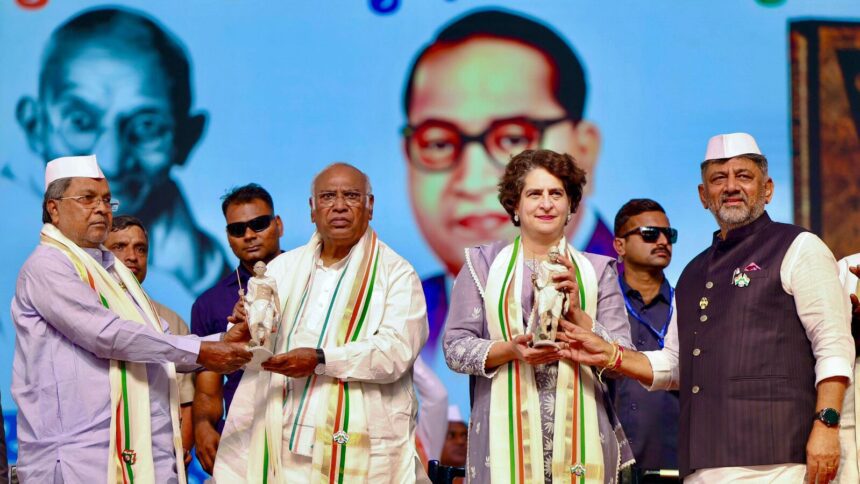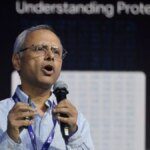Karnataka’s Chief Minister Siddaramaiah has joined the opposition against the delimitation process, labeling Union Home Minister Amit Shah’s statements on the controversial topic as “unreliable.” Siddaramaiah alleged that the Bharatiya Janata Party (BJP) is weaponizing delimitation to “muffle” southern states. Tamil Nadu Chief Minister MK Stalin has also voiced his opposition to delimitation, calling for a fair, transparent, and equitable approach that safeguards states managing population growth.
“If the Union government is genuinely interested in ensuring fairness for southern states, the home minister needs to clarify whether delimitation will be conducted based on the latest population ratios or the current distribution of Lok Sabha seats,” he stated.
Shah claimed on Wednesday that Tamil Nadu would not lose any Lok Sabha seats through delimitation. “Prime Minister Narendra Modi stated in the Lok Sabha that even after delimitation, the number of seats for all southern states will remain unchanged,” Shah mentioned.
However, the opposition argued that Shah’s comments are intended to sow confusion among the southern states. “It is clear that if delimitation occurs based on the latest population figures, it will be a grave wrong against the southern states. Previous delimitation exercises were conducted using the 1971 census as a basis, per Constitutional amendments,” Siddaramaiah remarked.
Shah’s remarks followed pushback from various political leaders regarding delimitation, emphasizing that the process must not disadvantage states that have successfully controlled population growth. Stalin has called for a fair, transparent, and equitable process to fortify the federal structure of India.
“Delimitation isn’t limited to Tamil Nadu – its impact extends across all of South India. An effective democratic process should not penalize states that have managed population growth successfully, excelled in development, and contributed significantly to national progress,” ANI reported Stalin saying on Tuesday.
He highlighted that Tamil Nadu could potentially lose eight Members of Parliament due to delimitation and has convened an all-party meeting on March 5 to deliberate on the matter.
“Delimitation hangs over South India like a sword, especially since Tamil Nadu, a leader in growth metrics, stands to be adversely affected. With 39 MPs, the looming threat of a reduction in representation from our state is alarming,” the Tamil Nadu Chief Minister had stated.
What is delimitation?
Delimitation refers to the process of defining the boundaries of electoral constituencies as per the Election Commission of India. This is performed based on updated population data from the most recent census.
Delimitation is a constitutional requirement. Article 82 mandates that the distribution of Lok Sabha seats must be revised according to population changes following every Census. This task is undertaken post-Census to reassess seat count in Parliament and constituency boundaries based on the latest population statistics, aiming to ensure equitable representation within constituencies.
What is the history of delimitation?
Prior to 1976, following each census, Lok Sabha, Rajya Sabha, and state legislative assembly seats were reallocated across the country based on census data collected in 1951, 1961, and 1971.
The 42nd Amendment, enacted during the Emergency, froze the total number of seats in Parliament and state assemblies until the 2001 Census. This measure was implemented to ensure that states with higher population growth could adopt family planning initiatives without jeopardizing their legislative representation.
Constituency boundaries were adjusted in 2001, but the count of Lok Sabha seats and legislative assembly strength in various states remained unaffected, despite dissent from southern states.
Why are Southern states apprehensive?
Southern states are concerned that their comparatively lower population growth, stemming from better economic conditions than their northern counterparts, could disadvantage them in future seat distributions. Politicians from these states are wary that if delimitation is based on population growth, the northern states will gain additional seats in Parliament, diminishing the southern states’ political influence.
Regional parties in the South fear that population-based delimitation may skew electoral advantages toward northern-centric parties like the Bharatiya Janata Party (BJP), which has been increasingly dominant in northern states.
After a prolonged period of BJP dominance in the North, party representation is shifting, whereas Congress retains a stronger foothold in the South, which includes 53 parliamentary seats from Karnataka, Maharashtra, Kerala, Telangana, and Tamil Nadu.
Previously, several chief ministers have raised alarms about the aging demographics in southern states. In October 2024, K. Chandrashekar Rao, whose party, the TDP, aligns with the NDA, expressed concerns regarding the aging populace in his state.
How are Lok Sabha seats assigned to states?
The allocation of seats per state is determined based on the average population figure derived from the delimitation commission’s evaluations, established prior to the delimitation process.
In the 1977 Lok Sabha elections, the average number of people represented by an MP in India was 10.11 lakh. There’s no set limitation on what constitutes the base average population. To maintain an average of 10.11 lakh per seat, the current population projection of around 146 crores would mean approximately 1,400 Lok Sabha seats by 2025.
This projection indicates that states with higher populations, like Uttar Pradesh and Bihar, could see a tripling of their Lok Sabha seats in future delimitation, while states like Tamil Nadu and Kerala might witness increases, albeit at a slower rate compared to their northern counterparts.
The new Parliament currently comprises only 888 seats, hence the 10.11 lakh average will not be utilized for seat calculations.
Siddaramaiah indicated that should the delimitation process lean on the latest census figures, southern states, including Karnataka, will likely face a decrease or stagnation in their seat allocations, while northern states would gain. “In either circumstance, southern states will incur losses. Is the Home Minister oblivious to this reality?” he questioned.
Projected reduction of LS seats in Karnataka
The Karnataka Chief Minister referenced studies on delimitation, predicting that if it relies solely on the new census data (from 2021 or 2031), Karnataka’s Lok Sabha seats could drop from 28 to 26. Similarly, Andhra Pradesh’s seats may decline from 42 to 34, Kerala’s from 20 to 12, and Tamil Nadu’s from 39 to 31.
Delimitation represents a looming threat for South India, especially for Tamil Nadu, which leads in growth metrics and would be adversely impacted.
“Simultaneously, we would see Lok Sabha seats in Uttar Pradesh increasing from 80 to 91, Bihar from 40 to 50, and Madhya Pradesh from 29 to 33. If this isn’t injustice, then what is?” Siddaramaiah questioned in his statement.
Siddaramaiah further accused the central BJP government of employing delimitation as a tactic to suppress the voices of southern states.
Stay updated on all Business News, Political news, Breaking News Events, and the Latest News through Live Mint. Download TheMint News App for daily market updates.










